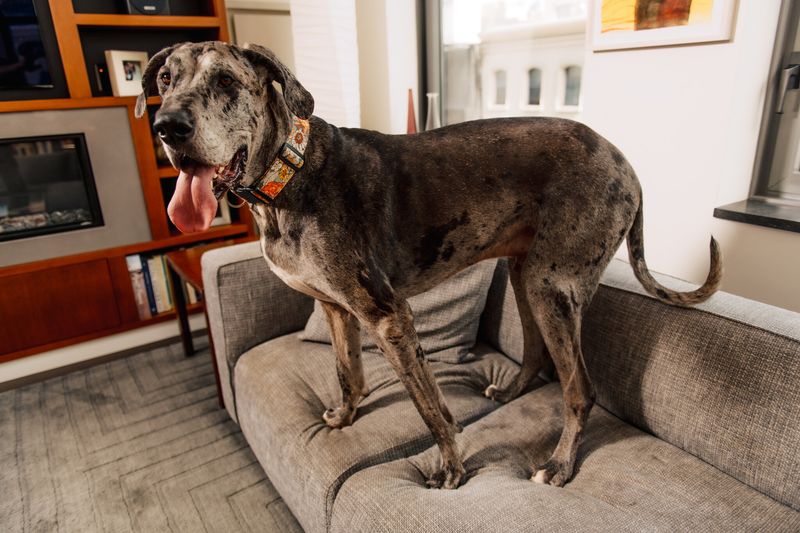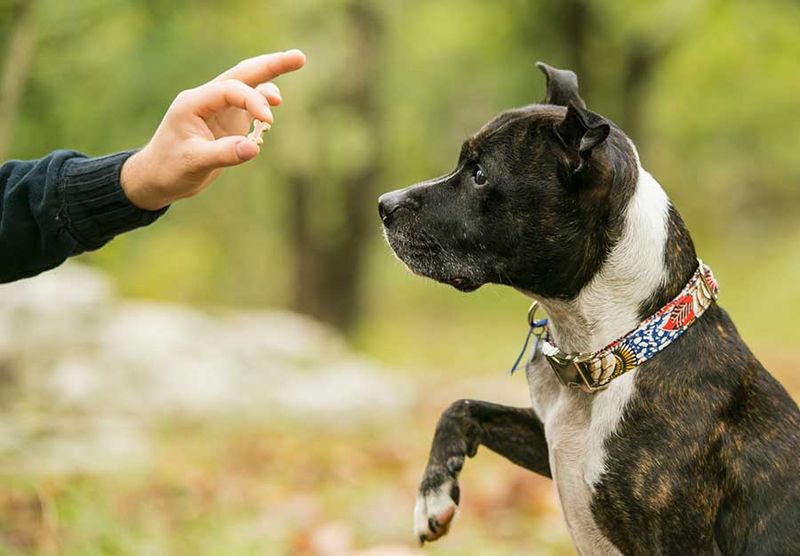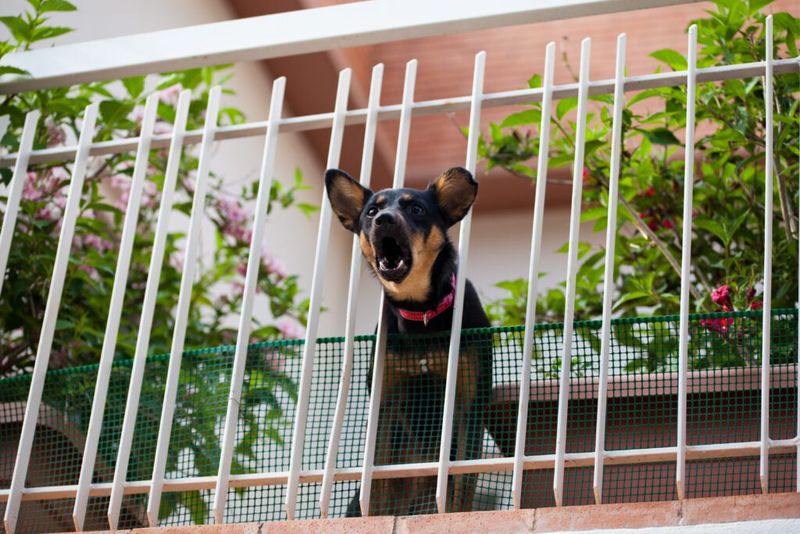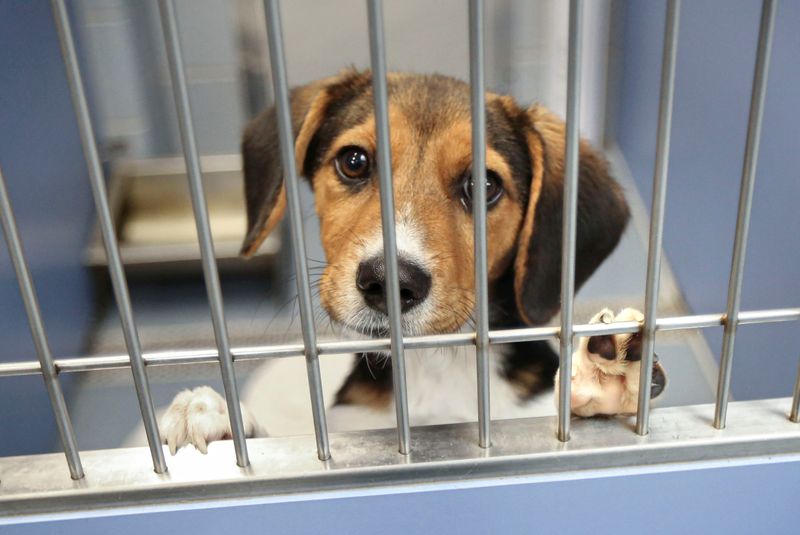Owning a dog can be a rewarding experience for many, but it is not without its challenges. For those considering bringing a furry friend into their home, it’s essential to weigh these potential downsides. Here are 15 reasons why one might reconsider getting a dog, each presented with an engaging narrative and insights into the complexities of dog ownership.
Time-Consuming Responsibilities
Dogs require significant time and attention. They thrive on routine, needing regular walks, feeding, and playtime. This commitment can be overwhelming for busy individuals.
Balancing work, social life, and dog care can become a juggling act. Missing a daily walk or feeding can lead to behavioral issues in dogs.
For those with demanding jobs, finding time for a dog might mean sacrificing personal leisure. Owning a dog is not just a hobby; it’s a lifestyle choice that demands significant devotion. Being emotionally and physically available is crucial for the dog’s well-being.
Potential for Allergies
Allergies can be a significant barrier to dog ownership. Many people discover their allergies only after adopting a pet.
Symptoms like sneezing, itching, and respiratory issues can make living with a dog uncomfortable. Some breeds are marketed as hypoallergenic, yet may still cause reactions.
Consulting with an allergist before adopting a dog can help determine potential risks. However, even with precautions, allergies might still pose a considerable challenge. For those susceptible, the joy of having a furry friend might be overshadowed by constant discomfort and health issues.
Space Constraints
Living space can greatly influence the suitability of dog ownership. For city dwellers in small apartments, accommodating a dog’s needs can be challenging.
Large breeds require ample space to move and play, while small apartments can feel cramped. Noise complaints from neighbors can also arise, particularly if the dog becomes vocal.
For those without a backyard, finding suitable areas for exercise can be difficult. The lack of space doesn’t just affect the dog’s happiness; it can impact the owner’s quality of life as well.
High Cost of Care
Dog ownership often comes with a hefty price tag. From the cost of food to veterinary bills, expenses can quickly add up. Many first-time dog owners don’t realize just how much a simple trip to the vet can cost.
In addition to regular check-ups, emergencies can arise that require immediate and often expensive attention. Buying nutritious food and grooming products also contribute to the high costs.
Budgeting for a dog isn’t just about the initial adoption fee; it’s a long-term financial commitment. A survey found that average annual expenses can easily reach over $1,000.
Vacation Hassles
Traveling with a dog can complicate vacation plans. Finding pet-friendly accommodations and transportation adds layers of complexity.
Many destinations have restrictions, limiting where dogs can go. For those who love spontaneous travel, having a dog requires additional planning and sometimes compromises.
Pet sitting or boarding can be costly and might not always be available on short notice. For those who cherish their freedom to travel unencumbered, owning a dog can feel like being tied down.
Training Challenges
Training a dog requires patience, consistency, and time. For new owners, the effort involved in training can be surprising.
Without proper guidance, dogs can develop undesirable behaviors that become harder to correct over time. Professional training can help, but it often comes at a significant cost.
Understanding canine behavior and investing in training is essential for a harmonious relationship. For some, the process can be daunting and discouraging, particularly when immediate results aren’t visible.
Behavioral Problems
Dogs, like humans, can exhibit various behavioral issues. From chewing furniture to excessive barking, these problems can test an owner’s patience.
Identifying the root causes, such as anxiety or lack of exercise, is crucial. However, addressing these issues can require professional help.
Behavioral problems not only disturb the household but can also affect relationships with neighbors. For those unprepared to handle such challenges, owning a dog might become an ongoing struggle.
Lifespan and Loss
The lifespan of a dog is relatively short compared to humans, leading to the inevitable grief of loss. Saying goodbye to a beloved pet can be one of life’s most profound sorrows.
This emotional toll can deter some from ever getting another dog. The bond formed over years can make the loss deeply felt, leaving a hole in the heart.
For those wary of emotional attachments, the impending loss of a pet might overshadow the joy of their companionship.
Social Restrictions
Owning a dog can lead to social limitations. Many public places, such as restaurants and certain parks, have restrictions against dogs.
This can limit social activities and gatherings, particularly for those who enjoy dining out or engaging in group events.
For those without access to pet-friendly venues, finding enjoyable activities can become difficult. These limitations might make dog ownership feel more isolating than inclusive.
Cleaning Duties
Dogs can be messy, leaving fur, dirt, and sometimes accidents all over the home. For those who value cleanliness, this can be a constant battle.
Regular cleaning becomes a necessity to maintain a hygienic living environment. Investing in cleaning supplies and devices becomes part of the routine.
For neat freaks, the perpetual cycle of cleaning can become tiresome and burdensome. A spotless home might become a distant dream with a dog around.
Barking and Noise
Dogs are vocal creatures, and barking is a natural expression for them. However, excessive barking can become a nuisance, both for the owner and the neighbors.
Understanding the reasons behind barking, such as boredom or stress, is essential to address the issue. Training and patience are critical in curbing unnecessary noise.
For those living in close quarters, the constant noise can strain relationships with neighbors and lead to complaints. Peace and quiet might be hard to achieve with a noisy dog.
Health Risks
Dogs, despite their friendly nature, can pose health risks. From bites to trips and falls, accidents do happen.
Understanding the potential dangers and being vigilant can prevent mishaps. For families with small children or the elderly, these risks might be more pronounced.
Owning a dog requires awareness and precaution, but accidents can still occur, leading to injuries. For the risk-averse, these potential dangers might outweigh the joys of having a dog.
Breed-Specific Legislation
Certain dog breeds are subject to legal restrictions in various regions. Breed-specific legislation can limit the choice of pets, often targeting breeds perceived as aggressive.
For potential dog owners, this can mean navigating complex legal landscapes. The stigma attached to certain breeds can also affect social interactions and insurance policies.
Understanding local laws is crucial for those considering owning a breed with restrictions. For some, the legal challenges and societal perceptions might be too burdensome.
Expectation vs. Reality
Many envision dog ownership as a picture of joy and companionship. However, the reality often includes unexpected challenges and responsibilities.
The idyllic image of a perfectly behaved pet can quickly fade when faced with daily care routines and issues. For first-time owners, this gap between expectation and reality can be startling.
Understanding the full extent of what owning a dog entails is crucial to prevent disillusionment. For some, the dream might not match the day-to-day reality.
Impact on Other Pets
Introducing a dog to a household with existing pets can disrupt the harmony. Animals may struggle to share attention, leading to jealousy and tension.
Understanding the dynamics between different species is essential to ensure a peaceful coexistence. For households with sensitive pets, this transition might prove challenging.
The introduction of a dog should be carefully managed, but not all pets will adjust smoothly. For those with established animal routines, adding a dog might upset the balance.















